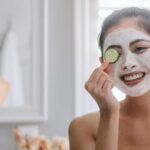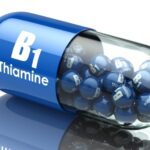According to
This concern has led to hesitation in offering cow’s milk and formula milk to children, which could negatively impact their overall development.
Cow’s Milk and Formula Milk Do Not Cause Early Puberty
Trương emphasizes that the notion that drinking cow’s milk or formula milk can lead to early puberty in children is entirely misleading. In reality, the hormones present in cow’s milk, which aid in milk production for cows, have no impact on the human body.
Trương, an expert in this field, clarifies that these hormones are completely digested and processed by enzymes in the stomach, intestines, and pancreatic juices, rendering them inert in the human body.
He further explains that the hormones in milk are neither estrogen nor testosterone, nor are they sex hormones. Therefore, consuming cow’s milk and formula milk does not induce early puberty. “Let’s stop blaming cow’s milk and formula milk,” he asserts.
Numerous global studies have been conducted on this subject, and scientists have found no evidence linking early puberty in children to the consumption of formula milk, powdered milk, or cow’s milk. So, if a mother faces challenges in breastfeeding, opting for formula milk is a reasonable choice for the child’s nutrition.

Scientists Have Found No Link Between Early Puberty and the Consumption of Formula, Powdered, or Cow’s Milk
However, Trương also advises that milk intake should be within appropriate limits for each age group. For children under one year old, milk is the primary source of nutrition, while children over one year old should not consume more than 500ml of milk per day.
This recommendation is not only to prevent early puberty but also to ensure a balanced diet and comprehensive development for the child. Research indicates that excessive milk consumption can limit children’s opportunities to explore a diverse range of foods, leading to the risk of malnutrition and rickets, which are detrimental to their health.
Primary Factors Contributing to Early Puberty in Children
Genetics
According to MedlinePlus, a service of the US National Library of Medicine, the most common genetic cause of early puberty is a mutation in the MKRN3 gene. Researchers also suspect that alterations in other yet-to-be-identified genes may be associated with this condition.

The Most Common Genetic Cause of Early Puberty is a Mutation in the MKRN3 Gene
Overweight and Obesity
Unhealthy eating habits, such as consuming fast food, coupled with a sedentary lifestyle that involves excessive screen time on phones, TV, or iPads, contribute to overweight and obesity in children.
These conditions can increase the risk of early puberty. Research from WebMD indicates that fat cells in the body produce leptin, a crucial hormone. The more fat cells there are, the higher the leptin levels. This hormone plays a vital role in regulating appetite, maintaining body shape, and influencing reproductive functions.
While leptin does not directly trigger puberty, studies have shown that children need a certain level of leptin in their bodies for puberty to occur. Therefore, girls with higher leptin levels due to being overweight tend to experience early puberty.
Use of Cosmetics and Plastic Products
The frequent use of everyday products like shower gel, shampoo, nail polish, and plastic food containers can lead to endocrine disorders, which are among the causes of early puberty.
Animal studies have revealed that several chemicals are associated with early puberty, such as phthalates, commonly found in fragranced products like perfume, soap, and shampoo; parabens, used as preservatives in many cosmetic products; and phenols, including triclosan.
Many parents may not pay attention to their children using soaps, shampoos, or even cosmetics like adults. This warrants reconsideration and restriction to prevent the risk of early puberty in children.
Why Do Duck Eggs Have White and Blue Shells? Which One is Better?
When purchasing duck eggs, you’ll notice two distinct varieties: those with green shells and those with white shells. It’s only natural to wonder why this difference exists and which type is superior. So, which one should you opt for? Are green-shelled duck eggs better, or do their white-shelled counterparts hold more nutritional value?
The 4 Main Culprits Behind Enlarged Pores
The female body is a complex ecosystem, and hormonal fluctuations during the menstrual cycle can cause a myriad of symptoms, including a temporary decrease in cognitive function. While these changes are natural and normal, they can be disruptive to daily life and are often understudied and misunderstood. It is important to recognize and address these fluctuations and their impact on overall well-being.
The 5 Unforeseen Dangers of Improper Makeup Application
The chemicals in cosmetics, when in frequent contact with the skin, can cause irritation, inflammation, and even damage to the skin’s natural protective barrier. This is a growing concern for many consumers who are now seeking natural and organic alternatives. With a plethora of natural ingredients available, there is a growing trend towards formulating cosmetics with botanical extracts and natural oils that nourish and protect the skin, offering a safer and healthier alternative to traditional cosmetics.






































